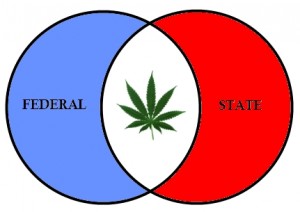(Marriage) Equality and the Popularity Paradox
Writing for the majority of the Supreme Court in United States v. Windsor, Justice Kennedy stated that “[t]he Constitution’s guarantee of equality ‘must at the very least mean that a bare congressional desire to harm a politically unpopular group cannot’ justify disparate treatment of that group.” Under this test, the Court struck down a key provision from the so-called Defense of Marriage Act (DOMA), which defined “marriage” and “spouse” for purposes of federal law as referring only to opposite-sex marriages and spouses. The opinion concludes that DOMA’s very object was “to ensure that if any State decides to recognize same-sex marriages, those unions will be treated as second-class marriages for purposes of federal law.”
It is almost trite to say that the result in Windsor would have been unthinkable just a few years ago. Yet this observation strikes at the heart of a paradox in the test applied by the Court: It suggests that a group has a realistic chance of being classified as a “politically unpopular group” deserving of protection only after it has acquired a certain level of popularity. Of course, the recent shift in popular opinion on same-sex marriage in the United States has been spectacular. In 2004, bans on same-sex marriage (and in many cases, also civil unions and other contractual protections of same-sex relationships) were adopted by popular vote in all of the eleven States where such bans had been put on the ballot during the general elections. Today, the States that have same-sex marriage bans on the books outnumber the States in which same-sex marriage is legalized by thirty-five to twelve (plus D.C.). Yet starting in 2010 or 2011, nationwide support for same-sex marriage began to exceed opposition to it. The increased popularity of the cause translated into political action: In 2012, for the first time voters approved initiatives to legalize same-sex marriage in three States (Maine, Maryland, and Washington). In that same year, voters in Minnesota voted down a proposed same-sex marriage ban. In sum, it is safe to say marriage equality has become a mainstream cause, albeit one that is still met with ardent opposition.

